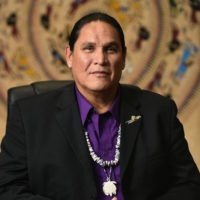Expectations for the divided Congress are low. The assumptions are two years of gridlock and fiscal showdowns, with few legislative gains. However, for Indian Country, gridlock is not an option. Tribal governments are facing the most significant threats to Tribal sovereignty in generations.
The months ahead will require a united voice from Indian Country to educate all members of Congress about federal Indian policy.
Understanding Tribal Government
In some ways, Indian law and policy is a complex maze of jurisdiction, but it boils down to one irrefutable fact: Indian Tribes are distinct sovereign governments that pre-existed the United States.
Like state and local governments, Indian Tribes work with the federal government to address the needs of their citizens.
However, unlike state and local governments, Indian Tribes entered into hundreds of treaties with the United States to build alliances and establish peace and trade agreements. In the process, Tribal governments ceded hundreds of millions of acres of homelands to help build this nation. These solemn agreements were not made between individuals based on race or ancestry.
This fact—the governmental status of Indian Tribes—is reaffirmed in the U.S. Constitution, which acknowledges that Congress has the power to work with “foreign Nations, among the several states, and with the Indian Tribes.”
For nearly 250 years, Congress has enacted laws to work with Tribal governments to address the many needs facing our communities. From Indian health care and education to housing, roads, and water and natural resources.
During the pandemic, Congress acknowledged the severe health and economic impacts facing all governments in our federalist system. Through both the CARES Act and the American Rescue Plan, Congress sought to address these impacts by delivering historic levels of funding directly to Tribal governments, state governments, and the territorial governments.
Tribal Sovereignty Under Attack
These laws that respect and acknowledge the governmental status of Indian Tribes are under attack in the federal courts.
In November of 2022, the Supreme Court heard arguments in Brackeen v. Haaland. The plaintiffs claim that the Indian Child Welfare Act is unconstitutionally based on race and ancestry. The opponents of ICWA urge the Court to ignore the historic atrocities of assimilation, during which the United States forcibly removed Indian children from their homes, placing them in boarding schools where they were forbidden from practicing their religion or speaking their language.
While this federal policy ended in the mid-1900s, it was replaced by an all-too-common practice in state family courts that separated Native children from their families and placing them in non-Native homes.
Congress enacted ICWA in 1978 to address this crisis. ICWA elevates respect for Tribal governments, their laws and family court systems. The law applies to Native children, not because of their race or ancestry, but based on the fact that they are citizens or potential citizens of Native Nations.
Facts vs. Fiction
It is no accident that the same law firm representing the plaintiffs in the Brackeen case also represents the plaintiffs in the Maverick Gaming v. United States case, which was filed in January of 2022. They make the same misguided arguments that the Indian Gaming Regulatory Act is unconstitutional on its face – based on race and ancestry.
Like Brackeen, the plaintiffs in Maverick ignore facts and history. IGRA did not invent Indian gaming. Indian gaming grew from the federal policy supporting Indian Self-Determination and President Nixon’s 1970 address to Congress. Tribal Governments embraced this new economic policy by opening the first modern-day Indian gaming operations to generate revenue to rebuild their communities.
After a decade of legal challenges by state governments and commercial gaming interests, the Supreme Court, in the historic 1987 Cabazon decision, affirmed the ability of Tribes to use gaming as a means of generating governmental revenue free of state control.
Congress enacted IGRA one year later, on October 17, 1988, to impose a federal regulatory system on Indian gaming, but also to acknowledge the fact that Indian gaming is Tribal government gaming. As was the practice from the onset, IGRA acknowledges that one hundred percent of the revenues generated from Indian gaming go to fund Tribal governments and the programs and services delivered to their citizens and communities.
Brackeen and Maverick are based on legal arguments that have no basis in law or fact. However, the current Supreme Court has shown a willingness to disregard precedent. We must be prepared to call on Congress and the Biden Administration to address any fallout.
These attacks on Tribal Sovereignty are a call to action for every Native Nation, Tribal leader, and Native organization to come together. We must unite in voice and purpose to protect our children, our communities, our economies, and our very way of life.
Ernie Stevens, Jr. is the Chairman and national spokesperson for the National Indian Gaming Association (NIGA). See more articles by Chairman Stevens here.




